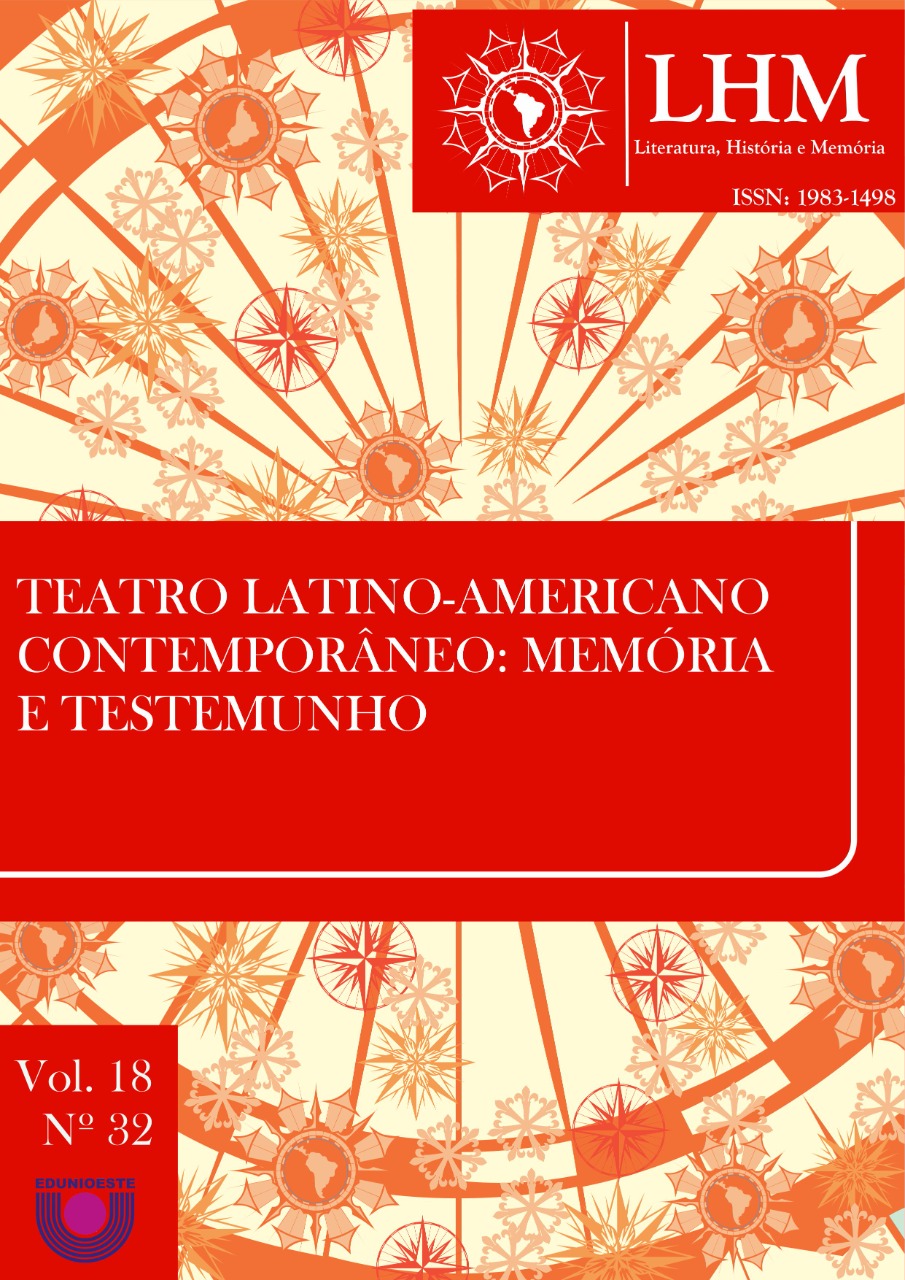Self-writing, memory, and testimony in the poetry of Alex Polari
DOI:
https://doi.org/10.48075/rlhm.v18i32.29359Abstract
This article intends to reflect in what way the concepts of memory, self-writing, and testimonial literature contribute to the construction of a text in which the subjects narrate or poetize the remarkable moments of their history, taking The Prisoner’s Dressing Room, by Alex Polari, as an object of study. He was a political prisoner during the Military Dictatorship in Brazil. This literary composition, made of memorial character and testimonial content, a celebrated expression by Seligmann-Silva (2003), presents first-person narratives and verses about experiences from childhood, through adolescence and youth, to the years of prison, from his testimony. Enlightened by the studies of Gomes (2004), Agamben (2008), and Klingel (2006), the results indicate thatthe return to the memory in that composition is a highly productive manner for the construction of a self-writing, that constitutes a testimony engendered by poetic expression.
Downloads
Published
How to Cite
Issue
Section
License

This work is licensed under a Creative Commons Attribution-NonCommercial-ShareAlike 4.0 International License.
Aviso de Direito Autoral Creative Commons
Política para Periódicos de Acesso Livre
Autores que publicam nesta revista concordam com os seguintes termos:
1. Autores mantém os direitos autorais e concedem à revista o direito de primeira publicação, com o trabalho simultaneamente licenciado sob a Licença Creative Commons Attribution que permite o compartilhamento do trabalho com reconhecimento da autoria e publicação inicial nesta revista.2. Autores têm autorização para assumir contratos adicionais separadamente, para distribuição não-exclusiva da versão do trabalho publicada nesta revista (ex.: publicar em repositório institucional ou como capítulo de livro), com reconhecimento de autoria e publicação inicial nesta revista.
3. Autores têm permissão e são estimulados a publicar e distribuir seu trabalho online (ex.: em repositórios institucionais ou na sua página pessoal) a qualquer ponto antes ou durante o processo editorial, já que isso pode gerar alterações produtivas, bem como aumentar o impacto e a citação do trabalho publicado (Veja O Efeito do Acesso Livre).
Licença Creative Commons
Esta obra está licenciada com uma Licença Creative Commons Atribuição-NãoComercial-CompartilhaIgual 4.0 Internacional, o que permite compartilhar, copiar, distribuir, exibir, reproduzir, a totalidade ou partes desde que não tenha objetivo comercial e sejam citados os autores e a fonte.


